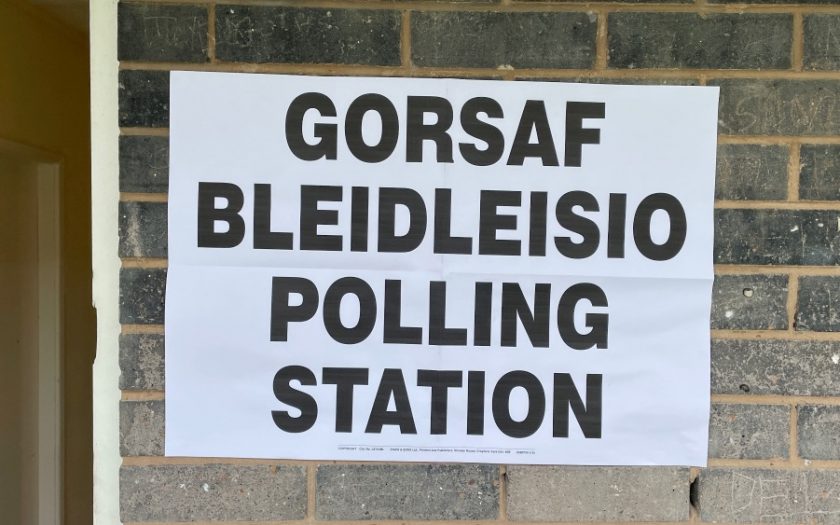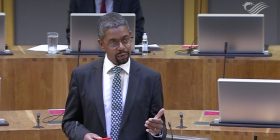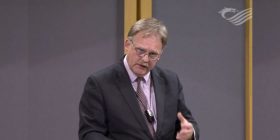Welsh Government “must work to improve diversity in local politics”

The Welsh Government needs to do more to encourage greater diversity in local government, according to a Senedd Committee.
The Local Government and Housing Committee’s latest inquiry found that town and community councils and local authorities were still not representative of the population.
Despite some recent improvements, there continues to be an under representation of women, ethnic minorities and people with disabilities.
A key recommendation of the report was that the Welsh Government should consider how more people from under-represented groups could benefit from assistance to put themselves forward for election.
The Committee welcomes the Welsh Government’s commitment to its Access to Elected Office Fund, but believes more needs to be done to raise awareness of its existence. Currently, this initiative supports disabled people to stand for office by providing support and grants to allow a level playing field with non-disabled candidates.
A grant could be used, for example, to pay someone to help deliver leaflets door-to-door, when the candidate’s own mobility won’t allow them to do this themselves, or to pay for British Sign Language Interpretation for political hustings.
The Committee recommends that an assistance scheme could also be developed to assist other under-represented groups, such as people from ethnic minority backgrounds, and should also be expanded in the type of support it can offer.
For example, people on low incomes or people with caring responsibilities might benefit from financial assistance, but for others, support such as mentoring and dealing with harassment or abuse as a candidate would be more appropriate.
John Griffiths MS, Chair of the Local Government and Housing Committee, said, “Today’s report raises important questions about our democracy and whether it is representative of everyone who lives in Wales. Unfortunately, it’s clear that there remains much more work to be done to ensure that local government represents people from all backgrounds.
“An assistance scheme to support people who are under-represented in politics needs to be a Welsh Government priority if we are serious about improving the diversity of our local representatives. I’m pleased to see provision for this in the Elections and Elected Bodies (Wales) Bill, which we will be scrutinising over the next few months.
The Committee heard from Electoral Reform Society Cymru that the proportion of female councillors had increased from 28 per cent in 2017 to 36 per cent in 2022 but that this was a “really slow rate of progress”.
In addition to this, there is a severe lack of data on candidates’ backgrounds. Local authorities are required to survey all council candidates about their backgrounds – but only 12 per cent responded to the 2022 survey.
The 2022 survey (here) noted:
- Around two-fifths (39%) of the 1,077 candidates who responded had stood for election to a County or County Borough Council in the past, and of this figure around a quarter (26%) had been elected.
- Around half (46%) of candidates who responded had stood for election to a Community or Town Council in the past; and around two-fifths (42%) had previously been elected.
- Of the 1,077 candidates who responded, 40% were female and 60% were male.
- Half of the 1,077 candidates who responded (50%) were aged 60 years or over, around two-fifths (38%) were aged between 40 and 59 years, a tenth (10%) were aged between 25 and 39 years and the remaining 2% were aged between 18 and 24 years.
- Overall, 96% of the 1,077 candidates reported they were from a White ethnic group.
- The survey found that 88% of the 1,077 candidates who responded identified as ‘heterosexual or straight’, 6% identified as ‘lesbian, gay or bisexual’ and the remaining 1% identified as ‘any other sexual orientation’
The Committee is calling on the Welsh Government to work closely with the Welsh Local Government Association to improve the response rate to the Local Government Candidate Survey. This should include increasing awareness and promotion of the survey among candidates and councillors, and sharing best practice between local authorities.
John Griffiths MS, continued, “We know that there are some examples of good practice already happening, especially in Monmouthshire and the Vale of Glamorgan, and we encourage the Welsh Government to facilitate councils learning from each other. Currently, there is a dearth of robust data available, and work must be done to get an accurate picture of the situation in Wales.
“I’m looking forward to the Welsh Government acting on these recommendations so that we can move positively to a more representative democracy in Wales.”
Spotted something? Got a story? Email [email protected]













